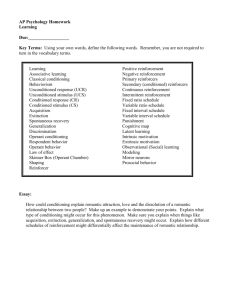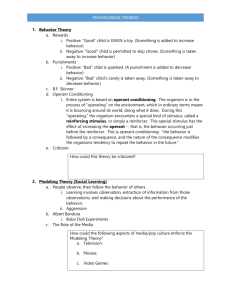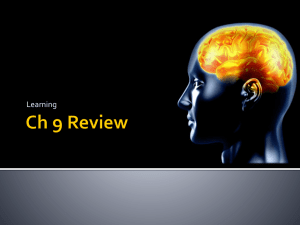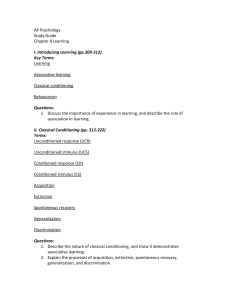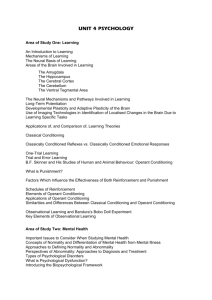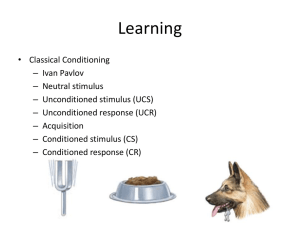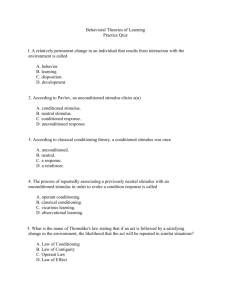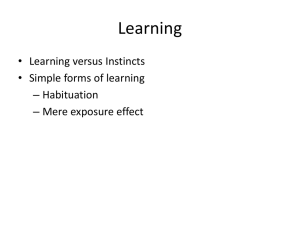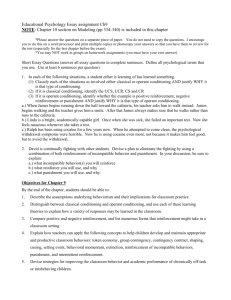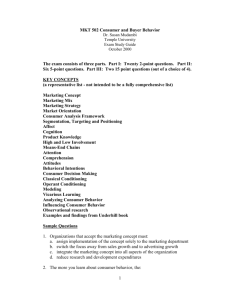AP Psychology: Learning - Study Guide
advertisement
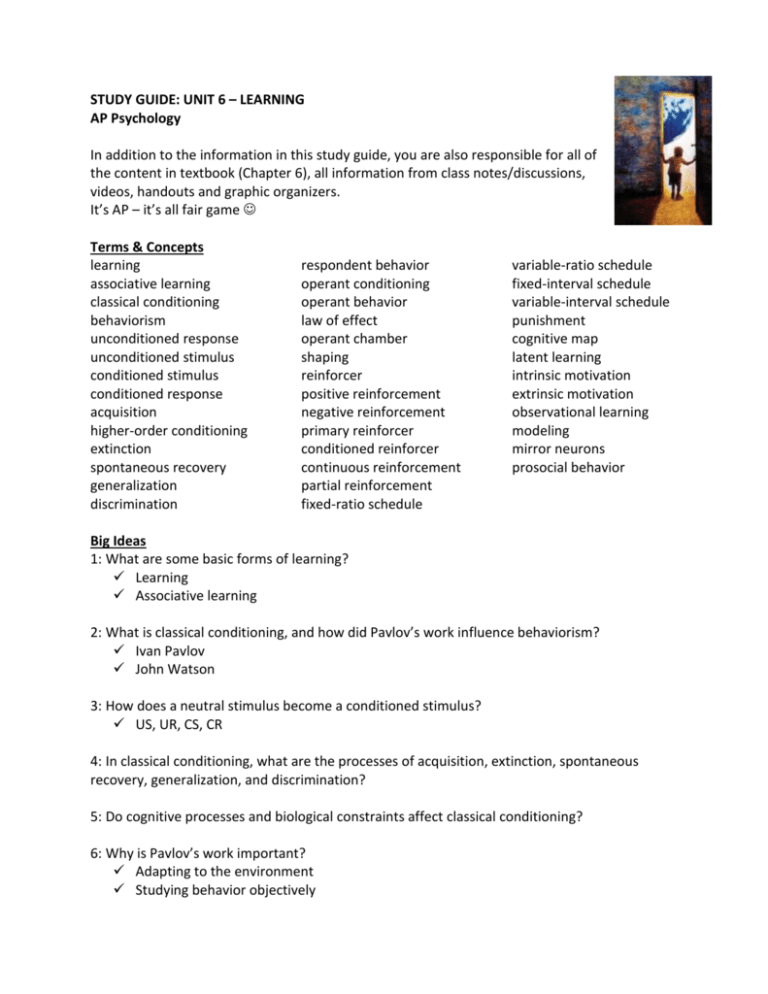
STUDY GUIDE: UNIT 6 – LEARNING AP Psychology In addition to the information in this study guide, you are also responsible for all of the content in textbook (Chapter 6), all information from class notes/discussions, videos, handouts and graphic organizers. It’s AP – it’s all fair game Terms & Concepts learning associative learning classical conditioning behaviorism unconditioned response unconditioned stimulus conditioned stimulus conditioned response acquisition higher-order conditioning extinction spontaneous recovery generalization discrimination respondent behavior operant conditioning operant behavior law of effect operant chamber shaping reinforcer positive reinforcement negative reinforcement primary reinforcer conditioned reinforcer continuous reinforcement partial reinforcement fixed-ratio schedule variable-ratio schedule fixed-interval schedule variable-interval schedule punishment cognitive map latent learning intrinsic motivation extrinsic motivation observational learning modeling mirror neurons prosocial behavior Big Ideas 1: What are some basic forms of learning? Learning Associative learning 2: What is classical conditioning, and how did Pavlov’s work influence behaviorism? Ivan Pavlov John Watson 3: How does a neutral stimulus become a conditioned stimulus? US, UR, CS, CR 4: In classical conditioning, what are the processes of acquisition, extinction, spontaneous recovery, generalization, and discrimination? 5: Do cognitive processes and biological constraints affect classical conditioning? 6: Why is Pavlov’s work important? Adapting to the environment Studying behavior objectively 7: What have been some applications of classical conditioning? Modern applications Watson & Little Albert 8: What is operant conditioning, and how does it differ from classical conditioning? Associations; behavior B.F. Skinner Skinner box Shaping 9: What are the basic types of reinforcers? Positive & negative Primary & secondary Delayed & immediate 10: How do different reinforcement schedules affect behavior? Continuous & partial schedules Ratio schedules Interval schedules 11: How does punishment affect behavior? Positive & negative punishment Negative effects 12: Do cognitive processes and biological constraints affect operant conditioning? Cognitive maps Latent learning Intrinsic & extrinsic motivation 13: How might operant conditioning principles be applied at school, at work, and at home? 14: What is observational learning, and how is it enabled by mirror neurons? Mirror neurons Bandura’s Bobo doll study Television Violence 15: What is the impact of prosocial modeling and of antisocial modeling? Prosocial modeling Antisocial effects (TV & video games) Violence-viewing effect Imitation Desensitization


